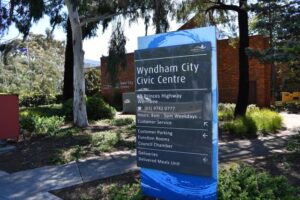
A recent report from the CSIRO, Australia’s national science agency, underscores the critical need for Indigenous leadership in the development and application of artificial intelligence (AI) within healthcare for Aboriginal and Torres Strait Islander communities. The study highlights that while AI holds significant potential to enhance healthcare outcomes, it must be guided by Indigenous knowledge and perspectives to ensure its safe and effective use.
Lead author Dr Andrew Goodman, an Aboriginal man from Iningai Country in Western Queensland and a research scientist at CSIRO, emphasized that existing frameworks for AI often lack the specificity required to address cultural diversity. “In Australia, this has resulted in a gap in understanding of how AI can serve Indigenous peoples,” he stated. This gap is being addressed through the Artificial Intelligence for Healthcare in Australian Indigenous Communities: Scoping Project, which aims to explore the relevance of AI in this context.
The scoping project engaged 53 leaders, clinicians, researchers, and health service providers across four workshops conducted between 2023 and 2025. Dr Goodman noted that although the findings are preliminary, they provide a vital starting point for the responsible integration of AI technologies, including applications and data collection, aimed at improving healthcare outcomes for Indigenous populations.
Three Priorities for Responsible AI Use
The consultations conducted during the project identified three critical priorities for the responsible use of AI in Indigenous health. These findings highlight the necessity of incorporating cultural knowledge into the design of AI systems. Dr Goodman remarked, “If AI is to benefit our mob, it must reflect our voices, our data, and our ways of knowing. Without Indigenous-led governance, there’s a real risk that AI will perpetuate bias and repeat the mistakes of the past.”
Dr Jill Gallagher, a proud Gunditjmara woman from Western Victoria and CEO of the Victorian Aboriginal Community Controlled Organisations, expressed that the project signifies a pivotal shift in the national dialogue surrounding digital health. “We know that Aboriginal Community Controlled Organisations can use AI as a powerful tool to support and strengthen their work, but it’s imperative that our Mob are in the driver’s seat to ensure true self-determination,” she said.
The project is co-led by CSIRO’s Australian e-Health Research Centre (AEHRC) in collaboration with several organizations, including the Victorian Aboriginal Community Controlled Health Organisation (VACCHO), the Aboriginal and Torres Strait Islander Community Health Service (ATSICHS Brisbane), the Centre of Excellence for Aboriginal Digital in Health (CEADH), and the Australian Indigenous HealthInfoNet.
The team is currently utilizing the insights gained from this scoping project to co-design self-determined AI tools tailored specifically for Aboriginal and Torres Strait Islander health needs. The report, titled Artificial Intelligence for Healthcare in Australian Indigenous Communities: Scoping Project to Explore Relevance, is available for download in PDF format.
This report not only highlights the potential of AI to transform healthcare in Indigenous communities but also emphasizes the essential role of Indigenous leadership and knowledge in this transformation.







